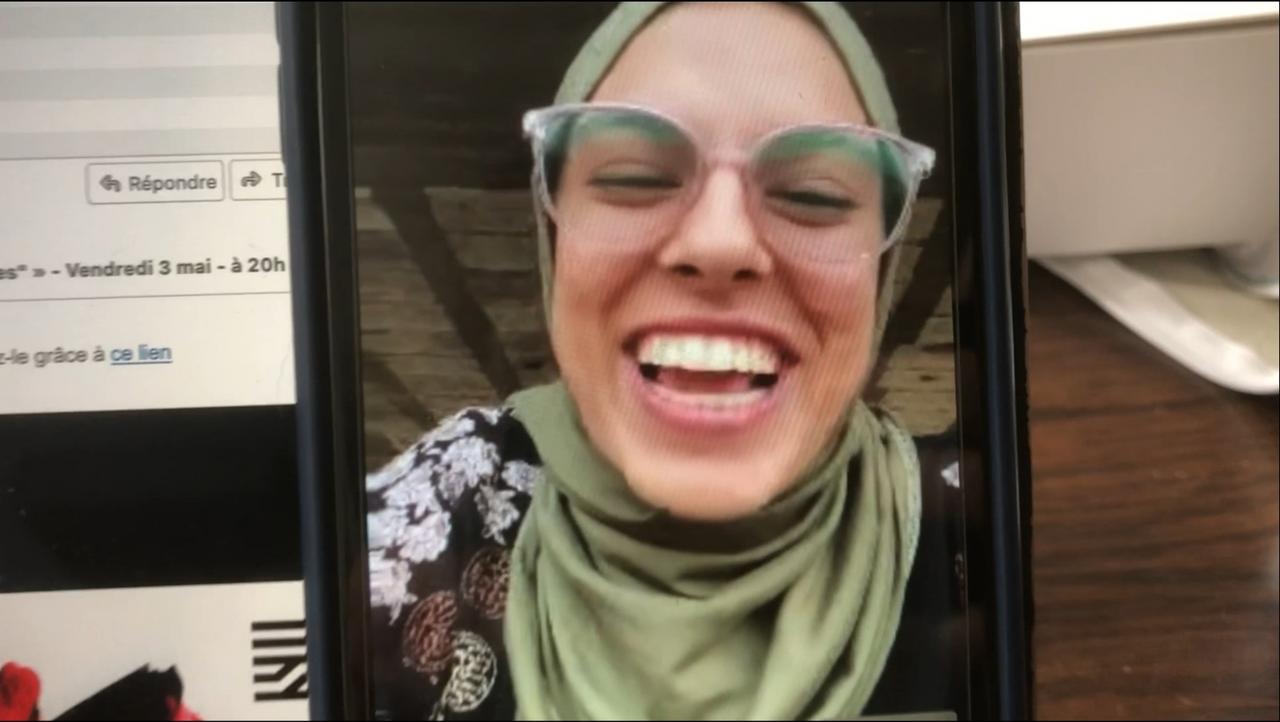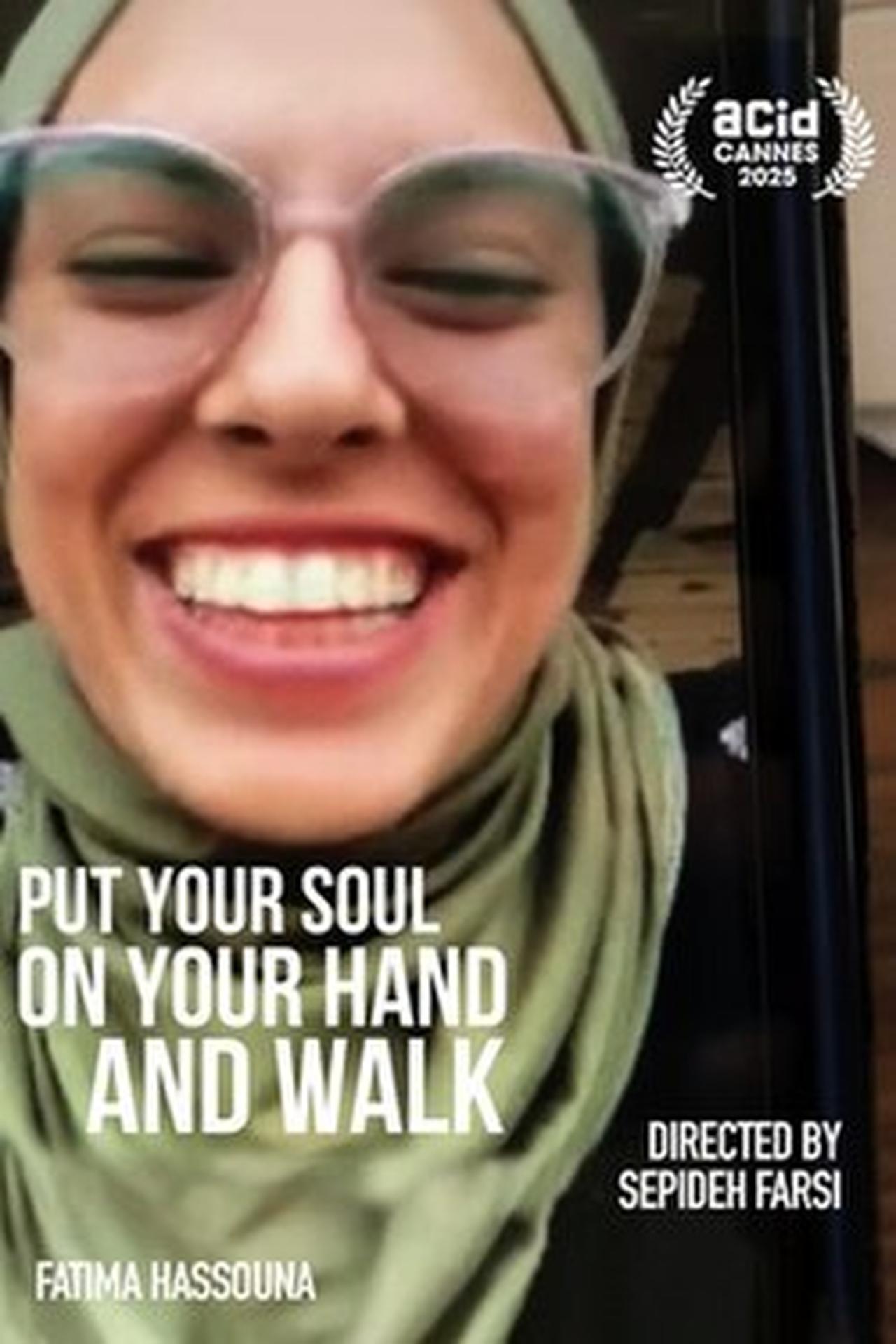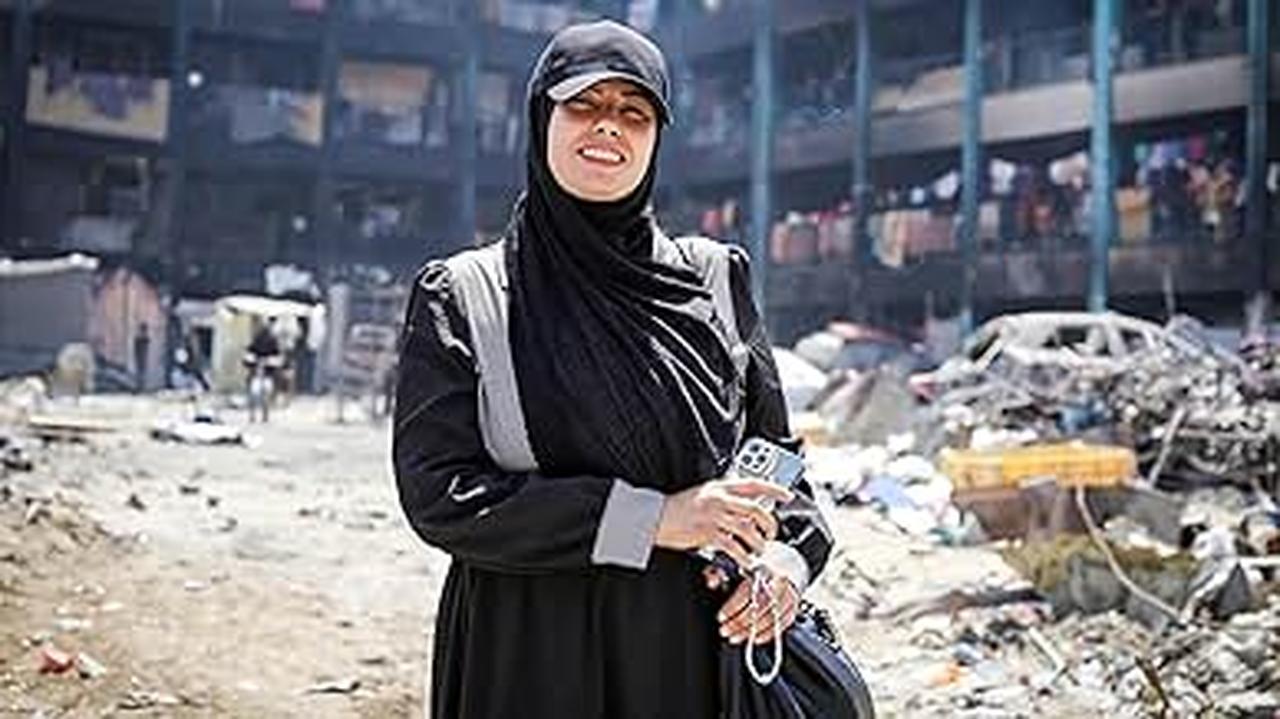
The ongoing war in Gaza cast a somber shadow over this year’s Cannes Film Festival, as the names of 25-year-old Palestinian photojournalist and artist Fatma Hassona echoed through the Palais des Festivals. Killed in an Israeli airstrike alongside ten members of her family just one day after her film was announced as part of the official lineup, Hassona became both a symbol of cinematic resistance and of the human cost of conflict.
On April 15, 2025, Put Your Soul in Your Hand and Walk—a series of filmed conversations between Iranian-French documentarian Sepideh Farsi and Fatma Hassona—was announced as part of the ACID (Association for the Distribution of Independent Cinema) section at Cannes. The next day, April 16, Fatma, along with Walaa, Alaa, Yazan, Mohammed, and Muhannad Hassona, were killed while they slept in their home in Gaza City. Her parents were seriously injured in the strike; her father, Raed, later died from his wounds.
Addressing the audience following the film’s screening, a visibly emotional Sepideh Farsi fought back tears.
“She was supposed to be here with us,” Farsi said. “My thoughts are with her family, especially her mother—the only survivor from her household. Our humanity has been scarred by the massacres continuing in Gaza.”
In a strong, urgent appeal, Farsi added:
“If cinema is meant to move things forward, then those of us in the cultural sector must stand up and demand an end to these atrocities. The starvation of Gazans and the killing of women and children must stop—these lives are being lost for nothing, sometimes merely for the act of documenting. If we remain silent, we become complicit.”

Fatma Hassona was an independent photojournalist who had committed herself to documenting the lives of Gazans under siege. Despite the risks of reporting from a war zone, she continued to photograph daily life in Gaza, determined to “bear witness” through her camera.
A mid-April statement from the Cannes Festival described her as someone who “took it upon herself to testify, through her work and commitment, to the daily realities of life in Gaza, despite the ever-present danger.”
Why was Fatma Hassona killed? While some still ask this question, Mohanad Yaqubi, Program Advisor at the Palestinian Film Institute, offered a stark perspective:
“There is a targeted campaign against those who produce visual narratives. Palestinians are targeted broadly—but artists, in particular, are being silenced. The harder question is: why don’t Western cultural institutions treat this as an assassination?”

Despite the grief, Palestinian cinema was visibly present at Cannes. In addition to Put Your Soul in Your Hand and Walk, the Nasser brothers’ feature Once Upon a Time in Gaza screened in the Un Certain Regard section, which runs parallel to the main competition.
“As Palestinians, we take pride in every film that reaches this stage—they are powerful stories,” said Yaqubi, recalling the legacy of filmmakers like Michel Khleifi and Elia Suleiman, both of whom have long-standing histories with the festival. He also noted that Palestine holds the record for the highest number of entries from a stateless nation in Cannes history.
“Being here strengthens the Palestinian narrative,” Yaqubi continued. “We don’t have the infrastructure to produce films independently—Palestinian cinema desperately needs support, especially now. There’s a systematic attempt to erase and silence us on the ground, and that won’t change unless we take the initiative, forge co-productions with the West, and fight to transform the cultural narrative.”
Fatma Hassona will never see her film premiere, but her voice resounds louder than ever. Through her images, her words, and now the international spotlight of Cannes, her legacy transcends screens and headlines.
In death, she has become what she strove to be in life: a witness—and a symbol of a people who continue to resist erasure through the power of image and story.